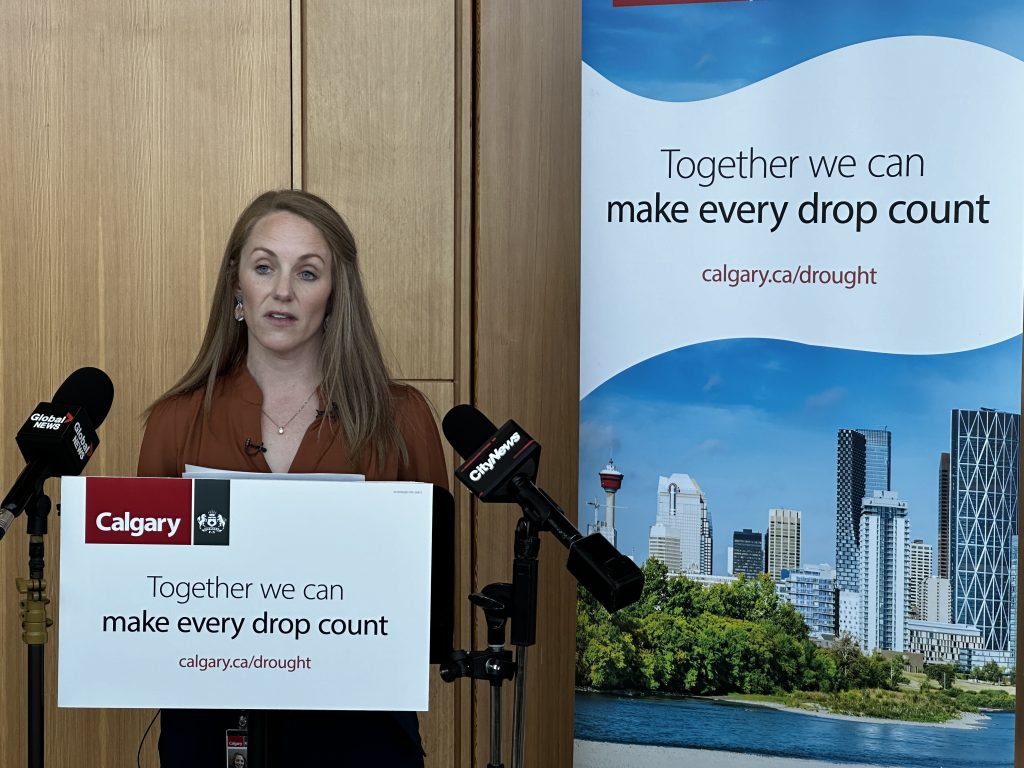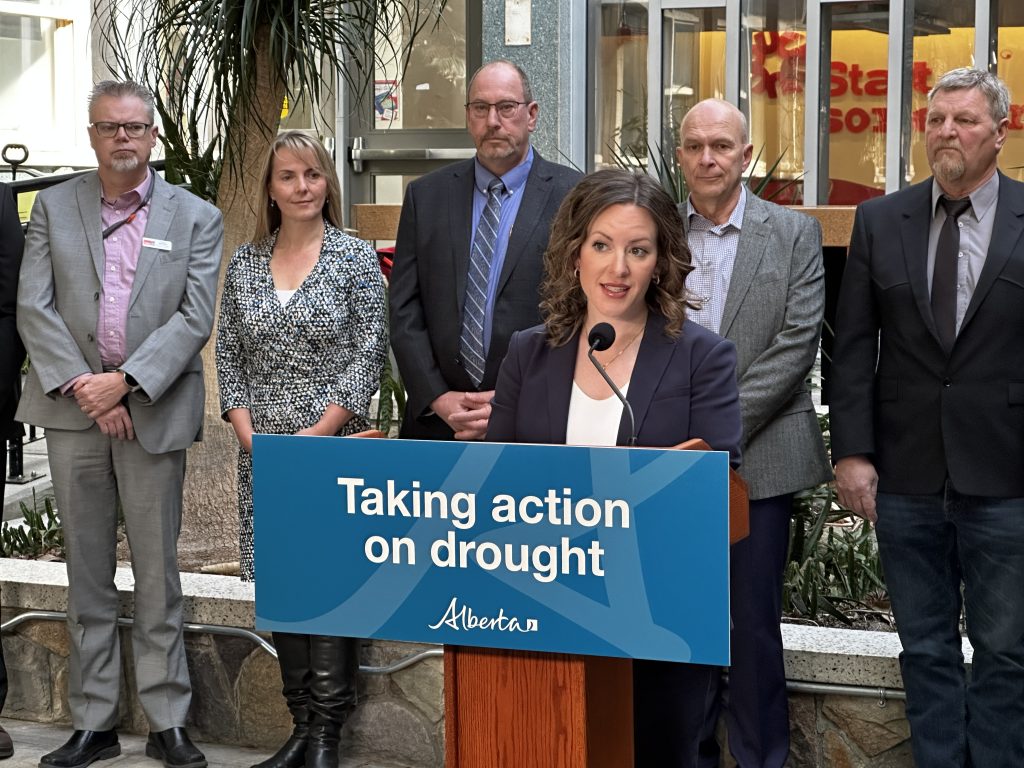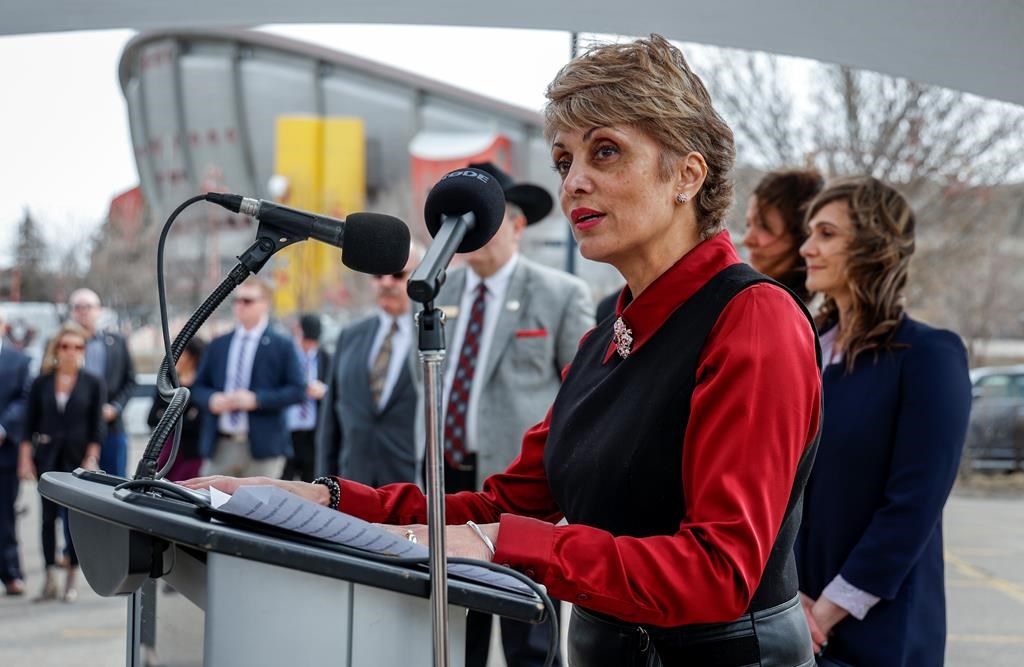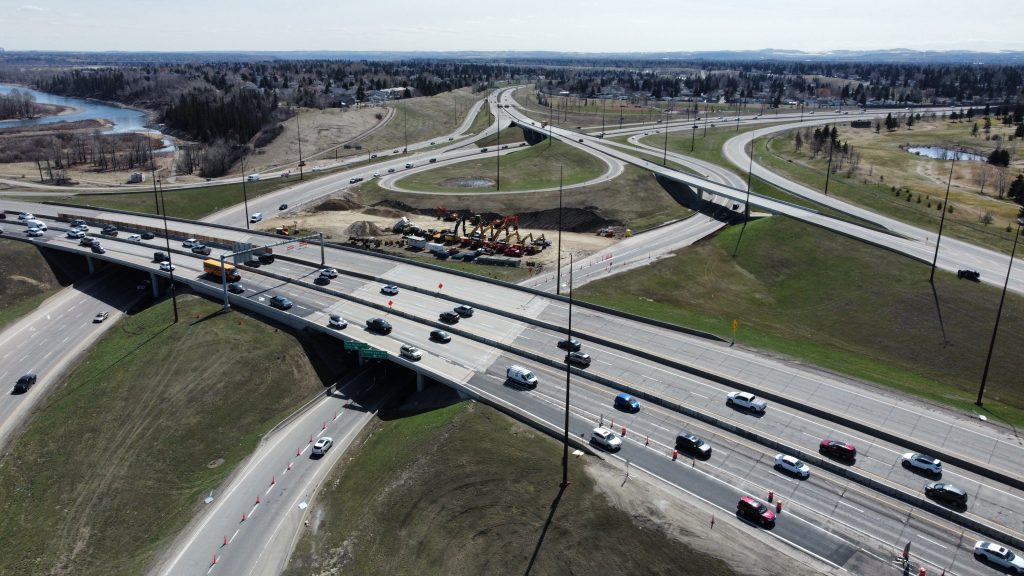Alberta bans carding by police, adds rules for street checks
Posted Nov 19, 2020 11:54 am.
Last Updated Nov 20, 2020 6:43 am.
EDMONTON (660 NEWS) – Alberta’s Justice Minister says the practice of carding by police services is banned effective immediately.
Members of the Calgary and Edmonton Police Service and the Tsuut’ina Nation police joined Madu in making the announcement on Thursday.
Madu said the government is also creating new rules when it comes to street checks.
This announcement comes as calls to defund the police grow across Canada in response to systemic racism and mistreatment of Black, Indigenous and people of colour (BIPOC)
Says he wants to find real solutions, not "virtue signalling." Clarifying the different between carding and street checks as well. Edmonton already has anti-carding policies in place. He says it is an inappropriate use of police power.
— Tom Ross (@Tommy_Slick) November 19, 2020
It also comes on the same day that an independent report outlined a culture of harassment in the RCMP.
The report said the force has created a toxic culture, tolerating hateful and homophobic attitudes.
RELATED: ‘Culture of the RCMP is toxic’ independent assessors report
Currently, Calgary and Edmonton police officer do not use carding but street checks.
“Members of Indigenous, Black and other racialized communities in Alberta expressed concerns about carding and street checks, and we have a responsibility to act on those legitimate concerns,” said Madu.
“The Government of Alberta supports the dedication and courage of the province’s police officers, and this historic change ensures they will continue to serve and protect our communities with the full trust and confidence of all Albertans.”
Madu said these were common sense reforms, rather than “virtue signalling” and blasted movements that propose re-allocating a portion of the police budget.
“You may have heard different buzzwords lately, like re-allocating. But the goal is the same: pandering to the far left ideology being pushed by radical activists,” he said. “Albertans support our police, and so does Alberta’s government. And as Minister of Justice and Solicitor General they can be rest assured that they would have, and continue to have, my absolute support.”
RELATED: Councillor, justice minister quarrel over decisions to ‘defund the police’
Madu added there will need to be more conversations about how to serve efforts that focus on community safety, but would not offer any details at the press conference. When asked by a reporter if he could flesh out the details some more, he refused.
“I have just made a historic announcement, I would like to focus questions on the historic announcement I made today,” he said.
The new rules on street checks state that officers can collect personal information from members of the public only in specific circumstances, such as asking about a crime that has taken place.
Police services are required to train officers to comply with the new rules and provide public education to help ensure people know their rights when interacting with police.
This includes holding information sessions with community groups, making information available on their websites and developing communications strategies through social media and in various languages.
While Madu said this was a prestigious moment for Alberta, there is a bit of doubt about what this really means in the long run.
“To be perfectly frank, it is long overdue,” said Siksika First Nation Councillor Samuel Crowfoot. “Are we supposed to express gratitude to the police for committing to no longer violate our rights? In the age of rallying cries like Black Lives Matter and defund the police, I can’t help but wonder what is really driving this announcement.”
Crowfoot says he is sick of hearing that systemic racism doesn't exist. Sick of seeing grandfathers being tackled by police. He wonders what is the real motivation behind this, hopes it is real and long-lasting.
— Tom Ross (@Tommy_Slick) November 19, 2020
“If there is real change, then yes we welcome it. But please, let it be real and let it be lasting.”
Madu and other Alberta government officials have made it a habit to denounce movements like defunding the police, even though it is being actively pursued by the Calgary Police Service in tandem with city council seeking to re-allocate 2.5 per cent of the police budget to community services in order to reduce call volume and help the service move away from being a defacto social services agency.
CPS Chief Constable Mark Neufeld added in the press conference that since carding is already not done by officers in the city, it won’t affect their practices much.
“Albertans, when they move around from community to community, can expect the same sorts of things,” he said. “While we know that our current policies here in Calgary are actually largely in alignment in the guideline that’s being proposed today, we look forward to actually going forward to having a deeper review.”
Neufeld and other police representatives at the press conference, including Edmonton Chief Dale McFee — who is also president of the Alberta Association of Chiefs of Police — said they still need to iron out some details on the guidelines to make sure it works within their organization. The rules around street checks will not go into full effect until early next year.
UCP MLA Mike Ellis, who is also a former police officer in Calgary, hailed the announcement as well and said he had been pushing for these same reforms for many years, and criticized the past NDP government for not acting on them during their time in the legislature.
The steps taken today by our government will benefit all Albertans. https://t.co/CYM1oPDkI1
— Mike Ellis (@MikeEllisUCP) November 19, 2020
RELATED: Calgary police continuing work on anti-racism plan, updating use of force
Doug King, a professor of justice studies at Mount Royal University, said when street checks are done according to the law it should not be done with a racial bias and should be tied closely to an actual investigation.
“If you have a reason to stop someone and you ask questions, that’s certainly okay. But it’s the issue of just kind of, you look suspicious and I don’t know what you’re doing here, that becomes carding,” he said, likening it to the notion of driving while Black. “Carding typically has a racial profiling component to it.”
King does believe the minister’s announcement is a good one and it does do a good job at clarifying the role of police to ensure they don’t overstep their powers. He added that while it is true that Calgary police did not explicitly teach the practice of carding, it still was likely happening anyways under the radar. It will also help to ensure that people are aware of their rights and they do not have to answer any questions from police.
There are still doubts among people focused on reforming the police, such as Taylor McNallie with Defund2Fund. She said the announcement was confusing, even though she started with a positive feeling on the news carding would be explicitly banned.
WATCH: ‘Street checks are carding’: Critics say Alberta’s police reforms don’t go far enough
“The fact of the matter is street checks will almost always lead to carding when performed with bias and without informing the party of their right to refuse anyway. I’m just confused as to what they were trying to accomplish in today’s meeting,” she said. “Essentially the UCP is patting each other’s backs for banning something that was unconstitutional to begin with and also claiming that they never allowed carding, which we all know is a lie.”
She said there is good work happening in tandem with police services and other organizations through Alberta communities, but there is a roadblock when it comes to interacting with the provincial government and there has been a total lack of engagement on the part of the UCP.
McNallie added that it is disheartening to hear the Minister of Justice use words like “radical” to describe her and other supporters of police reform movements, but she vows to not let it stop their work.
“It feels like an uphill battle constantly,” she said. “We know it is going to be a really long journey to get to where all Albertans feel safe and secure in this province and throughout Canada, but I’m not sure how we can make that work with people like Madu in office or the UCP in general.”










